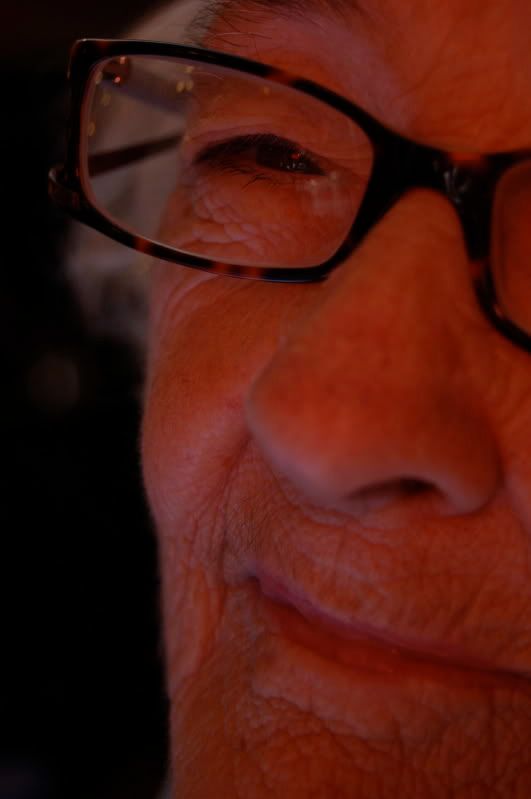
Blog Feeds
08-28 08:00 PM
"I'm having to deal with the reality of what is. You can't wish it away. What is, is." So says a glum Ohio Democrat, Governor Ted Strickland, according to reporter Laura Meckler in this weekend's edition of The Wall St. Journal ("Democrats Face Economic Facts: Updraft Unlikely"). Meckler's article reports on the prospect that Democrats "will lose their majority in the House," citing two nonpartisan election handicappers, the Rothenberg Political Report and the Cook Political Report. What would shared power portend for immigration reform if the GOP took control of one or both houses of Congress? Before that question can...
More... (http://blogs.ilw.com/angelopaparelli/2010/08/my-entry-2.html)
More... (http://blogs.ilw.com/angelopaparelli/2010/08/my-entry-2.html)
wallpaper Unseen Thailand , Don#39;t miss

Macaca
11-11 08:15 AM
Extreme Politics (http://www.nytimes.com/2007/11/11/books/review/Brinkley-t.html) By ALAN BRINKLEY | New York Times, November 11, 2007
Alan Brinkley is the Allan Nevins professor of history and the provost at Columbia University.
Few people would dispute that the politics of Washington are as polarized today as they have been in decades. The question Ronald Brownstein poses in this provocative book is whether what he calls “extreme partisanship” is simply a result of the tactics of recent party leaders, or whether it is an enduring product of a systemic change in the structure and behavior of the political world. Brownstein, formerly the chief political correspondent for The Los Angeles Times and now the political director of the Atlantic Media Company, gives considerable credence to both explanations. But the most important part of “The Second Civil War” — and the most debatable — is his claim that the current political climate is the logical, perhaps even inevitable, result of a structural change that stretched over a generation.
A half-century ago, Brownstein says, the two parties looked very different from how they appear today. The Democratic Party was a motley combination of the conservative white South; workers in the industrial North as well as African-Americans and other minorities; and cosmopolitan liberals in the major cities of the East and West Coasts. Republicans dominated the suburbs, the business world, the farm belt and traditional elites. But the constituencies of both parties were sufficiently diverse, both demographically and ideologically, to mute the differences between them. There were enough liberals in the Republican Party, and enough conservatives among the Democrats, to require continual negotiation and compromise and to permit either party to help shape policy and to be competitive in most elections. Brownstein calls this “the Age of Bargaining,” and while he concedes that this era helped prevent bold decisions (like confronting racial discrimination), he clearly prefers it to the fractious world that followed.
The turbulent politics of the 1960s and ’70s introduced newly ideological perspectives to the two major parties and inaugurated what Brownstein calls “the great sorting out” — a movement of politicians and voters into two ideological camps, one dominated by an intensified conservatism and the other by an aggressive liberalism. By the end of the 1970s, he argues, the Republican Party was no longer a broad coalition but a party dominated by its most conservative voices; the Democratic Party had become a more consistently liberal force, and had similarly banished many of its dissenting voices. Some scholars and critics of American politics in the 1950s had called for exactly such a change, insisting that clear ideological differences would give voters a real choice and thus a greater role in the democratic process. But to Brownstein, the “sorting out” was a catastrophe that led directly to the meanspirited, take-no-prisoners partisanship of today.
There is considerable truth in this story. But the transformation of American politics that he describes was the product of more extensive forces than he allows and has been, at least so far, less profound than he claims. Brownstein correctly cites the Democrats’ embrace of the civil rights movement as a catalyst for partisan change — moving the white South solidly into the Republican Party and shifting it farther to the right, while pushing the Democrats farther to the left. But he offers few other explanations for “the great sorting out” beyond the preferences and behavior of party leaders. A more persuasive explanation would have to include other large social changes: the enormous shift of population into the Sun Belt over the last several decades; the new immigration and the dramatic increase it created in ethnic minorities within the electorate; the escalation of economic inequality, beginning in the 1970s, which raised the expectations of the wealthy and the anxiety of lower-middle-class and working-class people (an anxiety conservatives used to gain support for lowering taxes and attacking government); the end of the cold war and the emergence of a much less stable international system; and perhaps most of all, the movement of much of the political center out of the party system altogether and into the largest single category of voters — independents. Voters may not have changed their ideology very much. Most evidence suggests that a majority of Americans remain relatively moderate and pragmatic. But many have lost interest, and confidence, in the political system and the government, leaving the most fervent party loyalists with greatly increased influence on the choice of candidates and policies.
Brownstein skillfully and convincingly recounts the process by which the conservative movement gained control of the Republican Party and its Congressional delegation. He is especially deft at identifying the institutional and procedural tools that the most conservative wing of the party used after 2000 both to vanquish Republican moderates and to limit the ability of the Democratic minority to participate meaningfully in the legislative process. He is less successful (and somewhat halfhearted) in making the case for a comparable ideological homogeneity among the Democrats, as becomes clear in the book’s opening passage. Brownstein appropriately cites the former House Republican leader Tom DeLay’s farewell speech in 2006 as a sign of his party’s recent strategy. DeLay ridiculed those who complained about “bitter, divisive partisan rancor.” Partisanship, he stated, “is not a symptom of democracy’s weakness but of its health and its strength.”
But making the same argument about a similar dogmatism and zealotry among Democrats is a considerable stretch. To make this case, Brownstein cites not an elected official (let alone a Congressional leader), but the readers of the Daily Kos, a popular left-wing/libertarian Web site that promotes what Brownstein calls “a scorched-earth opposition to the G.O.P.” According to him, “DeLay and the Democratic Internet activists ... each sought to reconfigure their political party to the same specifications — as a warrior party that would commit to opposing the other side with every conceivable means at its disposal.” The Kos is a significant force, and some leading Democrats have attended its yearly conventions. But few party leaders share the most extreme views of Kos supporters, and even fewer embrace their “passionate partisanship.” Many Democrats might wish that their party leaders would emulate the aggressively partisan style of the Republican right. But it would be hard to argue that they have come even remotely close to the ideological purity of their conservative counterparts. More often, they have seemed cowed and timorous in the face of Republican discipline, and have over time themselves moved increasingly rightward; their recapture of Congress has so far appeared to have emboldened them only modestly.
There is no definitive answer to the question of whether the current level of polarization is the inevitable result of long-term systemic changes, or whether it is a transitory product of a particular political moment. But much of this so-called age of extreme partisanship has looked very much like Brownstein’s “Age of Bargaining.” Ronald Reagan, the great hero of the right and a much more effective spokesman for its views than President Bush, certainly oversaw a significant shift in the ideology and policy of the Republican Party. But through much of his presidency, both he and the Congressional Republicans displayed considerable pragmatism, engaged in negotiation with their opponents and accepted many compromises. Bill Clinton, bedeviled though he was by partisan fury, was a master of compromise and negotiation — and of co-opting and transforming the views of his adversaries. Only under George W. Bush — through a combination of his control of both houses of Congress, his own inflexibility and the post-9/11 climate — did extreme partisanship manage to dominate the agenda. Given the apparent failure of this project, it seems unlikely that a new president, whether Democrat or Republican, will be able to recreate the dispiriting political world of the last seven years.
Division of the U.S. Didn’t Occur Overnight (http://www.nytimes.com/2007/11/13/books/13kaku.html) By MICHIKO KAKUTANI | New York Times, November 13, 2007
THE SECOND CIVIL WAR How Extreme Partisanship Has Paralyzed Washington and Polarized America By Ronald Brownstein, The Penguin Press. $27.95
Alan Brinkley is the Allan Nevins professor of history and the provost at Columbia University.
Few people would dispute that the politics of Washington are as polarized today as they have been in decades. The question Ronald Brownstein poses in this provocative book is whether what he calls “extreme partisanship” is simply a result of the tactics of recent party leaders, or whether it is an enduring product of a systemic change in the structure and behavior of the political world. Brownstein, formerly the chief political correspondent for The Los Angeles Times and now the political director of the Atlantic Media Company, gives considerable credence to both explanations. But the most important part of “The Second Civil War” — and the most debatable — is his claim that the current political climate is the logical, perhaps even inevitable, result of a structural change that stretched over a generation.
A half-century ago, Brownstein says, the two parties looked very different from how they appear today. The Democratic Party was a motley combination of the conservative white South; workers in the industrial North as well as African-Americans and other minorities; and cosmopolitan liberals in the major cities of the East and West Coasts. Republicans dominated the suburbs, the business world, the farm belt and traditional elites. But the constituencies of both parties were sufficiently diverse, both demographically and ideologically, to mute the differences between them. There were enough liberals in the Republican Party, and enough conservatives among the Democrats, to require continual negotiation and compromise and to permit either party to help shape policy and to be competitive in most elections. Brownstein calls this “the Age of Bargaining,” and while he concedes that this era helped prevent bold decisions (like confronting racial discrimination), he clearly prefers it to the fractious world that followed.
The turbulent politics of the 1960s and ’70s introduced newly ideological perspectives to the two major parties and inaugurated what Brownstein calls “the great sorting out” — a movement of politicians and voters into two ideological camps, one dominated by an intensified conservatism and the other by an aggressive liberalism. By the end of the 1970s, he argues, the Republican Party was no longer a broad coalition but a party dominated by its most conservative voices; the Democratic Party had become a more consistently liberal force, and had similarly banished many of its dissenting voices. Some scholars and critics of American politics in the 1950s had called for exactly such a change, insisting that clear ideological differences would give voters a real choice and thus a greater role in the democratic process. But to Brownstein, the “sorting out” was a catastrophe that led directly to the meanspirited, take-no-prisoners partisanship of today.
There is considerable truth in this story. But the transformation of American politics that he describes was the product of more extensive forces than he allows and has been, at least so far, less profound than he claims. Brownstein correctly cites the Democrats’ embrace of the civil rights movement as a catalyst for partisan change — moving the white South solidly into the Republican Party and shifting it farther to the right, while pushing the Democrats farther to the left. But he offers few other explanations for “the great sorting out” beyond the preferences and behavior of party leaders. A more persuasive explanation would have to include other large social changes: the enormous shift of population into the Sun Belt over the last several decades; the new immigration and the dramatic increase it created in ethnic minorities within the electorate; the escalation of economic inequality, beginning in the 1970s, which raised the expectations of the wealthy and the anxiety of lower-middle-class and working-class people (an anxiety conservatives used to gain support for lowering taxes and attacking government); the end of the cold war and the emergence of a much less stable international system; and perhaps most of all, the movement of much of the political center out of the party system altogether and into the largest single category of voters — independents. Voters may not have changed their ideology very much. Most evidence suggests that a majority of Americans remain relatively moderate and pragmatic. But many have lost interest, and confidence, in the political system and the government, leaving the most fervent party loyalists with greatly increased influence on the choice of candidates and policies.
Brownstein skillfully and convincingly recounts the process by which the conservative movement gained control of the Republican Party and its Congressional delegation. He is especially deft at identifying the institutional and procedural tools that the most conservative wing of the party used after 2000 both to vanquish Republican moderates and to limit the ability of the Democratic minority to participate meaningfully in the legislative process. He is less successful (and somewhat halfhearted) in making the case for a comparable ideological homogeneity among the Democrats, as becomes clear in the book’s opening passage. Brownstein appropriately cites the former House Republican leader Tom DeLay’s farewell speech in 2006 as a sign of his party’s recent strategy. DeLay ridiculed those who complained about “bitter, divisive partisan rancor.” Partisanship, he stated, “is not a symptom of democracy’s weakness but of its health and its strength.”
But making the same argument about a similar dogmatism and zealotry among Democrats is a considerable stretch. To make this case, Brownstein cites not an elected official (let alone a Congressional leader), but the readers of the Daily Kos, a popular left-wing/libertarian Web site that promotes what Brownstein calls “a scorched-earth opposition to the G.O.P.” According to him, “DeLay and the Democratic Internet activists ... each sought to reconfigure their political party to the same specifications — as a warrior party that would commit to opposing the other side with every conceivable means at its disposal.” The Kos is a significant force, and some leading Democrats have attended its yearly conventions. But few party leaders share the most extreme views of Kos supporters, and even fewer embrace their “passionate partisanship.” Many Democrats might wish that their party leaders would emulate the aggressively partisan style of the Republican right. But it would be hard to argue that they have come even remotely close to the ideological purity of their conservative counterparts. More often, they have seemed cowed and timorous in the face of Republican discipline, and have over time themselves moved increasingly rightward; their recapture of Congress has so far appeared to have emboldened them only modestly.
There is no definitive answer to the question of whether the current level of polarization is the inevitable result of long-term systemic changes, or whether it is a transitory product of a particular political moment. But much of this so-called age of extreme partisanship has looked very much like Brownstein’s “Age of Bargaining.” Ronald Reagan, the great hero of the right and a much more effective spokesman for its views than President Bush, certainly oversaw a significant shift in the ideology and policy of the Republican Party. But through much of his presidency, both he and the Congressional Republicans displayed considerable pragmatism, engaged in negotiation with their opponents and accepted many compromises. Bill Clinton, bedeviled though he was by partisan fury, was a master of compromise and negotiation — and of co-opting and transforming the views of his adversaries. Only under George W. Bush — through a combination of his control of both houses of Congress, his own inflexibility and the post-9/11 climate — did extreme partisanship manage to dominate the agenda. Given the apparent failure of this project, it seems unlikely that a new president, whether Democrat or Republican, will be able to recreate the dispiriting political world of the last seven years.
Division of the U.S. Didn’t Occur Overnight (http://www.nytimes.com/2007/11/13/books/13kaku.html) By MICHIKO KAKUTANI | New York Times, November 13, 2007
THE SECOND CIVIL WAR How Extreme Partisanship Has Paralyzed Washington and Polarized America By Ronald Brownstein, The Penguin Press. $27.95

hearthorbeguy
01-03 01:47 AM
Guys I will be going for my first H1 visa stamping in New Delhi. I am currently in the US. I transfered from F1 to H1. Have been looking into documents to take to the interview, and looking at so many 221(g) cases, have been confused by this term "unemployment wage report". I would really appreciate it very much if someone could please tell me what is "unemployment wage report" and how is different then "prevailing wage report"? Also, do I need to take both of them to the visa interview? Thanks!
Regards,
Hearthorbeguy
Regards,
Hearthorbeguy
2011 I Promise You nan nobakke

jessie1981
08-01 02:32 PM
Conclustion: "This Court finds that the FBI owes no duty to an applicant to process his or her background check. Absent a duty to the applicant, neither the Mandamus Act nor the Administrative Procedures Act confer jurisdiction on this Court over the FBI. Without an independent basis for jurisdiction over the FBI, and since the Declaratory Judgment Act does not confer jurisdiction, this Court is without subject matter jurisdiction to review any decisions or actions of the FBI regarding its processing of a background check for CIS that is related to immigration matters."
It seems that suing FBI becomes ineffective now.
It seems that suing FBI becomes ineffective now.
more...

mgakhar
04-03 08:16 PM
Hi All,
Im in the process of filing a new GC in EB2 category which eventually I will port to my older EB3 application. I wanted to find out if we need to do our Medical exam again during the I-485 stage?
Thanks,
M.
Im in the process of filing a new GC in EB2 category which eventually I will port to my older EB3 application. I wanted to find out if we need to do our Medical exam again during the I-485 stage?
Thanks,
M.

helpful_leo
02-09 09:40 PM
hi amol
are you aware of the PACE bill? I am concerned that current PhD graduates and life science PhD graduates appear to be excluded from the adjustment of status benefits proposed in the bill for doctoral candidates. I have drafted a letter and would definitely like IV to publicize it.
are you aware of the PACE bill? I am concerned that current PhD graduates and life science PhD graduates appear to be excluded from the adjustment of status benefits proposed in the bill for doctoral candidates. I have drafted a letter and would definitely like IV to publicize it.
more...

IQAndreas
03-13 04:52 AM
Darn. Too bad this guy didn't find out about the competition. This stuff is pretty neat.
http://www.sakri.net/blog/2010/02/13/in-your-own-words/
http://www.sakri.net/blog/2010/02/13/in-your-own-words/
2010 (for more information, you can
.jpg)
anshika012
12-02 01:45 AM
hi I wanna learn c, but I am so confused that from where I can learn it?
more...

GC_1000Watt
01-04 10:55 PM
Hello Gurus,
Please let me know where can I book an appointment for H1B visa extension stamping in Canada and/or Mexico.
Also if you have recently been there for stamping then please share your experience.
The documents that are being asked for and the current trend etc.
thanks in advance.
Please let me know where can I book an appointment for H1B visa extension stamping in Canada and/or Mexico.
Also if you have recently been there for stamping then please share your experience.
The documents that are being asked for and the current trend etc.
thanks in advance.
hair P.S. I#39;ll see you in a month

rkdnc9
09-18 12:35 PM
Friends,
Please suggest me what would be the best thing for me to do in my situation.
My H1 approval notice was sent to my employer (company A) on sep 10th. I got another job offer from company B in the meanwhile. I would like to start working for company B. I called company A and they said it would take this month end to get the papers. Is there anyway I can start working for company B from Oct 1st (unpaid or any other way) and then take papers(atleast a copy of approval notice) from company A and then apply for h1 transfer in the first week of october?
Please help.
Thanks in advance.
-rkdnc9
Please suggest me what would be the best thing for me to do in my situation.
My H1 approval notice was sent to my employer (company A) on sep 10th. I got another job offer from company B in the meanwhile. I would like to start working for company B. I called company A and they said it would take this month end to get the papers. Is there anyway I can start working for company B from Oct 1st (unpaid or any other way) and then take papers(atleast a copy of approval notice) from company A and then apply for h1 transfer in the first week of october?
Please help.
Thanks in advance.
-rkdnc9
more...
crazy_apple
07-14 05:24 PM
Hello,
I am sure others might have noticed that 485 processing dates at NSC (for example) have literally crawled from the beginning of the year to now. Here are the processing dates (per USCIS status).
https://egov.uscis.gov/cris/jsps/Processtimes.jsp?SeviceCenter=NSC
12/15/2007 Status - 04/24/2007
01/15/2008 - 07/19/2007
06/15/2008 - 07/28/2008
Thats roughly 9/10 days worth of 485 processing from mid-Jan to mid-Jun 2008. I wonder what the processing date looks like for the mid-July status update (which should probably be out tomorrow).
I am sure others might have noticed that 485 processing dates at NSC (for example) have literally crawled from the beginning of the year to now. Here are the processing dates (per USCIS status).
https://egov.uscis.gov/cris/jsps/Processtimes.jsp?SeviceCenter=NSC
12/15/2007 Status - 04/24/2007
01/15/2008 - 07/19/2007
06/15/2008 - 07/28/2008
Thats roughly 9/10 days worth of 485 processing from mid-Jan to mid-Jun 2008. I wonder what the processing date looks like for the mid-July status update (which should probably be out tomorrow).
hot All days; i will love you

njdude26
08-09 04:28 PM
Im currently in my 8th year H1 extension. I will file for my 9th year extension ( 1yr extension) and get it stamped in December. Then I will be outside the country for a year and will come back in next december'07. At that time can i file an extension and get a 3 year extension since i have been out of the country for a year ? If my labor gets approved and 140 gets approved then i know i will be able to do it but if the labor is still stuck....
more...
house Linda Chung - Miss you day and

Giles08
11-27 06:05 PM
Hello all:
My friend currently is in his home country. He worked with H1-b before, and left US because of being laid off (could not found a new job in time). His question is if he can apply for B2 and go to the US first, then stay in US looking for a job. After getting an offer, transfer his previous H1-b to a new company. Can he do like that? Thanks!
My friend currently is in his home country. He worked with H1-b before, and left US because of being laid off (could not found a new job in time). His question is if he can apply for B2 and go to the US first, then stay in US looking for a job. After getting an offer, transfer his previous H1-b to a new company. Can he do like that? Thanks!
tattoo I miss you every moment like

ramidiskr
01-09 08:10 PM
Immi Gurus,
My wife is planning to go to India this month.. Her H-4 expires on Jan 31st...
My H-1 also expires on Jan31st and I am applying for my H-1 extension..
But we don't have the AP approved yet, we have the receipts of AP and 485.
Can she go to India and come back with the AP after her AP is approved (I will mail it to India.)?????
Please Advice, If this would abandon her AOS.
Thanks
Sharath
My wife is planning to go to India this month.. Her H-4 expires on Jan 31st...
My H-1 also expires on Jan31st and I am applying for my H-1 extension..
But we don't have the AP approved yet, we have the receipts of AP and 485.
Can she go to India and come back with the AP after her AP is approved (I will mail it to India.)?????
Please Advice, If this would abandon her AOS.
Thanks
Sharath
more...
pictures Graphics for I Miss You

rph20
07-17 08:24 PM
Hi,
Currently I am on H1B visa.I will file my 485 as secondary applicant.What are my options in case If I have to leave my job and my 485 is still not approved.
Do I need to file H4 (Since 485 is still not approved) ?
Thanks in advance.
Currently I am on H1B visa.I will file my 485 as secondary applicant.What are my options in case If I have to leave my job and my 485 is still not approved.
Do I need to file H4 (Since 485 is still not approved) ?
Thanks in advance.
dresses You always i missed

filipe707
03-18 06:52 PM
I have received an email from USCIS that
Current Status: Approval notice sent
"On XXXXXX, we mailed you a notice that we have approved this I130 IMMIGRANT PETITION FOR RELATIVE, FIANCE(E), OR ORPHAN. Please follow any instructions on the notice. If you move before you receive the notice, call customer service."
This is the case regarding the application for my brother\sister. However, it's more than 10 days and I have not received the letter yet.
Called customer service and they said to wait 30 days.
Also, the processing time showing is March, 1999. I am bit confused what shall I do now. any suggestion or help would be appreciated.
Thanks.
Current Status: Approval notice sent
"On XXXXXX, we mailed you a notice that we have approved this I130 IMMIGRANT PETITION FOR RELATIVE, FIANCE(E), OR ORPHAN. Please follow any instructions on the notice. If you move before you receive the notice, call customer service."
This is the case regarding the application for my brother\sister. However, it's more than 10 days and I have not received the letter yet.
Called customer service and they said to wait 30 days.
Also, the processing time showing is March, 1999. I am bit confused what shall I do now. any suggestion or help would be appreciated.
Thanks.
more...
makeup Miss you. I love you. lt;3

smithshn
05-07 09:01 AM
Program is the instance of the form.
It is indirectly inherited of your form.
And it is the class of itself.
It is indirectly inherited of your form.
And it is the class of itself.
girlfriend I am sure you guys will laugh

jma1108
01-29 10:15 PM
Hello,
Currently my 485 is pending over 1.5 years with I-140 approval (2007). I was laid-off. I have valid EAD card. Am I eligible to transfer to a TARP company for a similar position but in different state? Is there any specific policy or limitation for this work status? The company's HR couldn't make a decision. What should I do? Thank you very much for your kind and generous help.
Currently my 485 is pending over 1.5 years with I-140 approval (2007). I was laid-off. I have valid EAD card. Am I eligible to transfer to a TARP company for a similar position but in different state? Is there any specific policy or limitation for this work status? The company's HR couldn't make a decision. What should I do? Thank you very much for your kind and generous help.
hairstyles Great job Nan, YOU#39;RE A

Blog Feeds
07-10 08:40 AM
Conservatives for Comprehensive Immigration Reform (yes, there is such a group and, yes, it makes perfect sense for true, small government conservatives), had a strategy call this week. Here's a key comment from the call: Congressman Lincoln Diaz Balart stated, �We�re ready in the House�There is a variety of thinking in both parties on this issue. Republicans have backed off in the Senate. They have not backed off in the House.� His brother, Congressman Mario Diaz Balart continued, �This issue is, how do we get it done? Where we are today. Obama said that in his first 12 months he...
More... (http://blogs.ilw.com/gregsiskind/2010/07/republican-house-members-were-ready-to-pass-immigration-reform.html)
More... (http://blogs.ilw.com/gregsiskind/2010/07/republican-house-members-were-ready-to-pass-immigration-reform.html)
roseball
03-19 07:22 PM
Based on USCIS's last action rule, the status of an applicant depends on whatever petition is approved last. So, if her H4 is approved after her H1 COS, then she will be on H4.
I am assuming you have applied for H1/H4 extension recently in regular processing. So the chances of her H1 COS getting approved first under premium are higher. So once you get her H1 COS approval, just withdraw her H4 petition.
I am assuming you have applied for H1/H4 extension recently in regular processing. So the chances of her H1 COS getting approved first under premium are higher. So once you get her H1 COS approval, just withdraw her H4 petition.
jsb
11-15 12:03 PM
Is it okay with AOS application to take contract Job after six month of AOS filling.
I am getting a long term contract with better opportunities. How is the contract job interpreted with continuing AOS application
You can do anything, using EAD or H1B if you have one, prior to getting your GC, as long as when you are nearing your GC, your GC sponsor or some other employer, is prepared to confirm that job same/similar to what is in LC, is available for you.
I am getting a long term contract with better opportunities. How is the contract job interpreted with continuing AOS application
You can do anything, using EAD or H1B if you have one, prior to getting your GC, as long as when you are nearing your GC, your GC sponsor or some other employer, is prepared to confirm that job same/similar to what is in LC, is available for you.
No comments:
Post a Comment